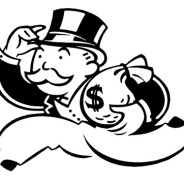
In another example of pharmaceutical manufacturer greed, prices of concentrated insulin have soared. There is no reason for the increases other than profit.
The discovery of insulin by Frederick Banting, who then developed the process of extracting it for medical use with his student Charles Best, saved the lives of many diabetics. Those people had a form of diabetes, Type 1 insulin-deficient diabetes, that is less common now. Today Type 2, insulin-resistant diabetes is all the rage. Type 2 diabetics are usually fine if they exercise and manage their diet properly. However, growing numbers of patients with uncontrollable Type 2, as well as those with Type 1, have to use insulin. Highly concentrated insulin improves the health care and quality of life of those who must use a lot of insulin.
From 2007 to 2008 sales of this concentrated insulin rose 71%. As the sales of concentrated insulin rose, the manufacturers recognized an economic opportunity. Since 2007, prices for this concentrated insulin have risen drastically. In 2007, it cost $220. By 2011, the price had jumped to $500. Now it is $1,200!
Concentrated insulin, specifically this form of concentrated insulin, is not a new drug. It is 62 years old, nearly eligible for Medicare if it were human. The price of a new drug incorporates research and development costs. It is like an unstable, high maintenance horse, needing a good deal of support to get comfortable and settle down to work. An old drug is like an old work horse. It is steady, familiar and gets the job done; no longer requiring its owner to invest a lot of time to manage the horse. Simply put, there is no reason that this old workhorse drug should suddenly cost so much.
On the one hand, a company exists to make money. That is the nature of capitalism. On the other, is it right for corporations to reap “excessive” profits by squeezing money from vulnerable individuals, whose very life would be endangered without the medication? The big answer, NO, is clear to anyone. Determining what “excessive” means and how to fairly regulate the drug industry are more complex issues.
The bottom line is very clear. Profiteering in the pharmaceutical industry must stop.
